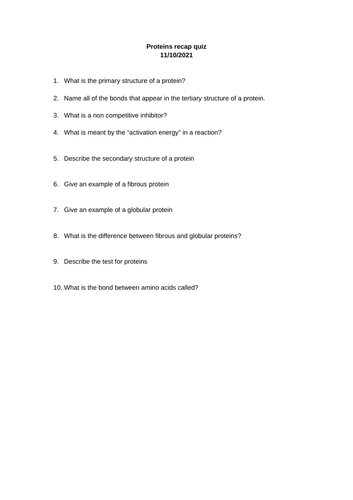biologytrainee123's Shop
I share original PowerPoints, worksheets and SEN/EAL booklets that I created while training to become a Science Teacher. I have continued to use these resources successfully during my 3 year teaching career. My resources include a full lesson plan in the description (40-50 minutes) to guide other trainees and PGCE students. I received an Outstanding grade at the end of both placements, where I used these resources. Resources are for KS3 Science, PSCHE, GCSE Biology, Chemistry and Physics, A Leve











